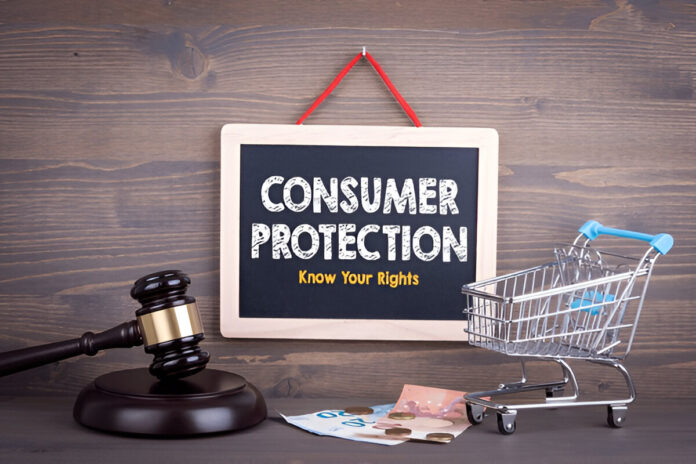Are you one of the many Ugandans who have started shopping online? From ordering food on Glovo to buying clothes on Jumia or electronics from Dombelo, online shopping has truly changed how we buy things in Uganda. But have you ever paid for something online and it never arrived? Or maybe you received a completely different item from what you ordered? These troubles happen to many of us.
The good news is that you have strong rights when shopping online in Uganda, even though many shoppers don’t know about them. Our government has put in place laws like the Consumer Protection Act 2019 that protect you when buying things on the internet. This article will explain your rights in simple terms and tell you exactly what to do when online shops or sellers treat you unfairly.
Whether you’re shopping using mobile money, credit cards, or even cash on delivery, understanding your rights will help you shop with confidence and avoid being cheated. Let’s dive into what protections you have as an online shopper in Uganda.
Legal Framework Protecting Online Shoppers in Uganda
Before we talk about your specific rights, it’s important to know which laws protect you when shopping online in Uganda. These laws are your shield against unfair treatment:
- Consumer Protection Act 2019: This is the main law that protects all consumers in Uganda, including online shoppers. It gives you rights to quality products, fair treatment, and proper remedies when things go wrong.
- Electronic Transactions Act 2011: This law makes online contracts and payments legally binding in Uganda. It means that when you buy something online, the seller must honor that agreement just like a paper contract.
- Data Protection and Privacy Act 2019: This law protects your personal information when you shop online, preventing companies from misusing your details.
- Computer Misuse Act 2011: This protects you against online fraud and scams when shopping.
- Uganda Communications Act 2013: This regulates telecommunications and online services, including many e-commerce platforms.
These laws work together to create a safety net for you when shopping online. Now, let’s look at your specific rights under these laws.
Your Rights as an Online Shopper in Uganda Explained
There are several important rights that protect you as an online shopper in Uganda. These rights aren’t just nice-to-have benefits—they’re legal entitlements backed by Ugandan law. Many online sellers may not inform you about these rights, hoping you won’t know what you’re entitled to when problems arise. Understanding these rights puts the power back in your hands as a consumer. Whether you’re shopping from big platforms like Jumia or smaller Instagram shops, these protections apply equally. Let’s examine each of these rights in detail so you know exactly what you’re entitled to when shopping online in Uganda.
1. Your Right to Safe and Secure Transactions
When you shop online in Uganda, you have the right to secure payment methods and transactions. This means:
- Online shops must use secure payment systems that protect your financial information.
- They must provide clear receipts or confirmation of your purchase.
- If an unauthorized transaction happens, you have the right to dispute it.
For example, if you buy a smartphone on Jumia using your MTN Mobile Money and notice an extra charge you didn’t authorize, you have the right to report this to both Jumia and MTN, and they must investigate.
Many online shops in Uganda now use secure payment gateways like Pesapal, DPO, or mobile money APIs that protect your transaction information. If a website asks you to send money directly to someone’s personal mobile money number without any secure system, be very careful—this might not offer the protections you’re entitled to.
2. Your Right to Refunds, Returns, and Replacements
This is one of the most important rights for online shoppers. Under Ugandan law:
- You have the right to return products that are damaged, faulty, or not as described.
- Online sellers must clearly state their return policy before you buy anything.
- You have at least 7 days to return most items under the Consumer Protection Act.
- You deserve a full refund, replacement, or repair for faulty goods.
For instance, if you ordered a genuine Tecno phone from an online shop but received a counterfeit one, you have the right to return it and get your money back. The seller cannot refuse by claiming “no returns” if they sent something different from what was advertised.
Many Ugandan online shoppers fear that once they pay, they can never get their money back. This is not true! The law protects your right to get what you paid for or get your money back.
3. Your Right to Fair Delivery and Shipping Services
When shopping online in Uganda, you have rights regarding delivery:
- Sellers must clearly state delivery timeframes before you complete your purchase.
- They must honor the delivery time they promised.
- You have the right to track your package if the service offers tracking.
- You shouldn’t pay extra for delivery unless you were informed of the cost beforehand.
For example, if a shop promises delivery within Kampala in 24 hours but your package arrives after 3 days with no explanation, you can demand compensation for the delay, especially if it caused you problems.
Many online shops partner with delivery companies like SafeBoda, Glovo, or SendyUG. Remember that the shop is responsible for your delivery even if they use another company to deliver—don’t let them blame delays on the delivery company!
4. Your Right to Data Privacy and Protection
Your personal information deserves protection:
- Online shops can only collect information they need to process your order.
- They must protect your data from theft and misuse.
- They cannot share your personal details with other companies without your permission.
- You have the right to know what information they have about you.
For example, if you buy medicine from an online pharmacy in Uganda, they cannot turn around and share your medical information with insurance companies or other businesses without your clear consent.
This is especially important because many Ugandans use personal details for mobile money transactions. Your phone number, name, and sometimes even ID information must be kept confidential by online shops.
5. Your Right to Quality Goods
When shopping online in Uganda:
- Products must match their description and pictures.
- Goods must be of acceptable quality and fit for their purpose.
- You have the right to know if products are used, refurbished, or have defects.
- Food products must be safe to eat and not expired.
Let’s say you order a “brand new iPhone” online, but when it arrives, you notice scratches and signs of previous use. This violates your right to quality goods as described, and you can demand a replacement or refund.
Unfortunately, some online sellers in Uganda post stock photos but deliver completely different items. Remember that you have the right to receive exactly what was advertised or get your money back.
6. Your Right to Fair Pricing
Pricing must be honest and transparent:
- Online shops must display the total price including taxes and fees.
- They cannot add hidden charges at checkout without prior notice.
- Discounts and promotions must be genuine.
- Price comparisons must be truthful.
For example, if you see a dress advertised for 50,000 UGX but at checkout, they suddenly add a “service fee” of 10,000 UGX that wasn’t mentioned, you can refuse to pay this extra charge.
This is particularly important in Uganda where many online businesses advertise prices excluding VAT or delivery fees, only to surprise you with additional costs when paying. The law now requires transparent pricing.
7. Your Right to Complain
If something goes wrong with your online purchase:
- You have the right to file a complaint directly with the seller.
- The seller must have a clear complaints procedure.
- You deserve a response within a reasonable time (typically 14 days).
- You can escalate your complaint to regulatory authorities if the seller ignores you.
For example, if you order furniture online and it arrives damaged, but the seller stops responding to your messages after you’ve sent photos of the damage, you have the right to file a complaint with the Uganda National Bureau of Standards (UNBS) or the Uganda Consumer Protection Association.
Many Ugandan online shoppers give up when sellers “ghost” them after problems arise. Don’t give up—the law is on your side!
8. Your Right to Fair Treatment
Discrimination has no place in online shopping:
- Online shops cannot refuse to sell to you based on your tribe, religion, gender, or location in Uganda.
- Terms and conditions must apply equally to all customers.
- Pricing should be consistent for all shoppers (except for legitimate promotions).
- Customer service must treat all customers with respect.
For instance, if an online shop refuses to deliver to certain areas of Kampala without a valid reason (like security concerns), this could be considered discriminatory.
Fair treatment also means that online businesses should accommodate customers with disabilities by making their websites accessible and providing alternative ways to shop if needed.
9. Your Right to Consumer Education
Knowledge is power when shopping online:
- Sellers must provide clear information about products and services.
- They should explain how to use products safely.
- They must disclose any risks associated with products.
- Instructions should be available in understandable language.
For example, if you buy electronics online, the seller should provide clear usage instructions, preferably in English or local languages. If a product has specific risks or maintenance requirements, these should be clearly explained.
This right is particularly important in Uganda where technical knowledge varies widely among consumers. Online sellers have a duty to ensure you understand what you’re buying and how to use it correctly.
What to Do If Your Rights Are Violated
If an online shop or seller violates your rights:
- Document everything: Save all messages, receipts, adverts, and photos of the products.
- Contact the seller directly: Explain the problem clearly and reference your specific rights under Ugandan law.
- Use formal channels: Send a formal complaint letter by email, with evidence attached.
- Set a deadline: Give them a reasonable time (14 days) to resolve the issue.
- Use public platforms if necessary: Sometimes a public complaint on social media can prompt action, though try direct contact first.
- Escalate to authorities: If the seller doesn’t respond, contact the relevant regulatory body.
- Consider legal action: For serious cases, you can file a claim in a Ugandan magistrate’s court.
Remember, most legitimate businesses want to maintain their reputation and will resolve genuine complaints when approached properly.
How to Report Online Shopping Rights Violations
If your attempts to resolve the issue with the seller fail, you can report violations to:
- Uganda National Bureau of Standards (UNBS): For issues with product quality and standards. Contact: 0417 333 250 or info@unbs.go.ug
- Uganda Communications Commission (UCC): For issues with online platforms and communications. Contact: 0800 222 777 (toll-free) or ucc@ucc.co.ug
- Bank of Uganda: For payment and financial transaction issues. Contact: 0414 258 441/6 or info@bou.or.ug
- Uganda Consumer Protection Association: For general consumer rights violations. Contact: 0414 342 987 or ucpa@consumer.ug
When reporting, provide all evidence including screenshots, receipts, and your communication with the seller. Be specific about which right you believe has been violated.
Common Online Shopping Scams in Uganda
Be aware of these common online shopping scams in Uganda:
- Fake shops: These collect payments but never deliver products. Always check if an online shop has a physical address and verifiable contact information.
- Counterfeit products: Some sellers advertise genuine brands but deliver fakes. Research the seller’s reputation before buying branded items.
- Bait and switch: Advertising one product but sending something completely different or inferior.
- Mobile money scams: Fake payment confirmation messages or requests to send money to “confirm your address.”
- Social media marketplace scams: Fraudsters on Facebook or WhatsApp groups who take payments and disappear.
For example, a common scam in Uganda involves sellers claiming to import electronics from Dubai at very low prices. They collect advance payments from many customers, then disappear without delivering.
Best Practices for Safe Online Shopping in Uganda
To shop safely online in Uganda:
- Research the seller: Look for reviews and ask friends about their experiences before buying.
- Use secure payment methods: Mobile money, reputable payment gateways, or cash on delivery are safer than direct bank transfers.
- Keep records: Screenshot adverts, save receipts, and record all communication with sellers.
- Start small: When trying a new online shop, make a small purchase first to test their service.
- Verify physical presence: Shops with actual stores or offices in Uganda are often more trustworthy.
- Check for contact information: Legitimate businesses provide multiple ways to contact them.
- Be wary of deals that seem too good: Unusually low prices often indicate counterfeit or poor-quality goods.
- Use established platforms: Sites like Jumia, Kikuubo Online, or verified business websites tend to be safer than random social media sellers.
Conclusion
As online shopping continues to grow in Uganda, knowing your rights is your best protection against fraud and poor service. Remember that Ugandan law provides strong consumer protection, but you need to be aware of your rights to enforce them.
Don’t be afraid to speak up when online sellers violate your rights. By standing firm and knowing the proper channels for complaints, you not only protect yourself but also help create a better online shopping environment for all Ugandans.
The next time you click “buy” or send that mobile money payment, do so with confidence, knowing exactly what protections you have under Ugandan law. And if something goes wrong, you now know exactly what steps to take.
Online shopping should be convenient and safe—and with the right knowledge, you can ensure that your experience is both. Happy (and safe) shopping!




